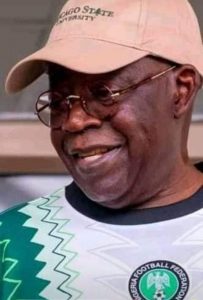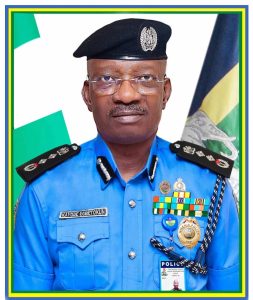The Nigerian Economic Downturn; Implications for the Nigerian Trade Union Movement in Enugu,

The Nigerian Union of Railways in conjunction with the Community Building and Development Initiative (CBDI) organized a workshop aimed at bringing together leaders of the trade union movement in Nigeria across all divides as well as the critical faculties to brainstorm on the challenges of the current economic downturn, its impact on the union movement, the escalating crises bedeviling the union movement itself and come up with appropriate responses to the crises. The following trade unions were present:
Nigeria Union of Railway Workers (NUR)
National Union of Shop and Distributive Employees (NUSDE)
Senior Staff Union of Universities (SSANU)
National Union of Textile, Garments and Tailoring Workers of Nigeria (NUTGT)
National Union of Electricity Employees (NUEE),
National Union of Petroleum and Natural Gas (NUPENG)
National Union of Lottery Agents Employees (NULAE)
Preamble
Worried by the declining standards of living of working people in Nigeria today with irregular payment of the remuneration of public sector workers, continued degradation of labor standards through staff rationalizations, mass dismissal of workers, contract staffing, casualization as well the massive labour glut in the informal economy resulting in intense competition and further pauperization as well as rising waves of increased user fees of social goods such as education and healthcare services; all against the background of rampant inflation and devaluation of the national currency,
Concerned about the declining membership of the trade unions as a result of the unabating implementation of neo- liberal capitalist economic policies such as privatization, commercialization and trade liberalization,
Aware of the massive loss of national wealth through unprecedented plundering of state resources by political office holders with the loss of at least US$178bn between 2004 and 2013, alone, in terms of illicit financial outflows excluding other forms of looting such as oil theft, bunkering, etc. Combined with the obscenely high remuneration of Nigerian public holders with a Nigerian Senator earning an average of US$ 2.1 million while the American President earns just about US$ 300, 000, the hemorrhage of public resources has ensured an appalling level of social inequality and mass pauperization,
Also aware that the President Mohammadu Buhari’s avowed anti – corruption posture has barely scratched the surface of the problem of corruption with very few convictions of well – advertised corrupt politicians and very paltry recovery of stolen pubic funds, the continued opaqueness of public expenditure management especially in the oil and gas industry as well as at the state and local government levels of governance,
Conscious of the fact that the absence of social security with over 90% of the working population in the informal sectors of the economy excluded from any form of social protection while the cost of social services such as education and healthcare escalates, is directly responsible for the escalating social anomie in the country. The Boko Haram insurgency can be directly linked to the fact that over 11 million school age children and young adults are without education and useful vocational skills in the northern parts of the country while the parlous state of material existence in the Niger Delta region also correlates with the unrelenting armed criminality being witnessed in the region. The social costs of the absence of social security for most vulnerable people is proving to be enormous,
Worried by the rising waves of insecurity directly linked to spiraling social and economic inequality, collapsing physical and social infrastructures such as electricity, roads, public education, public sanitation etc,
Realizing that the trade union movement is dangerously succumbing to divisive pressures around private/public sector, junior/senior staff, formal/informal, casual/ regular workers and other forms of cleavages resulting in open rifts and for the first time in the history of the labour movement, an inability to successfully carry out a strike action,
The meeting overwhelmingly resolved as follows:
- The President Mohammadu Buhari administration must go beyond the rhetorics of fighting corruption by holistically tackling the problem by –
- Implementing the much talked about reform of the judicial system so as to ensure that corruption cases are more speedily concluded,
- Making the budgeting process more open and participatory with detailed break – down of income and expenditure at all levels of governments. Such detailed budgets and breakdowns should be made available on the websites of the federal, state and local governments,
- Drastically reducing the remuneration of public officials to reflect the remuneration of public servants. A situation where a Nigerian senator earns several times the salary of the American president can no longer be tolerated.
- More importantly, Nigeria should starting practicing a unicameral, part time legislature.
- Trade union leaders must shun flamboyant and ostentatious lifestyle, be more open and accountable to members while devoting more union resources to the massive political education of the rank and file members as well as ensure mass participatory meetings.
- The meeting also frowns at the 2004 Pensions Act as amended in 2014 as being grossly incapable of meeting the minimum threshold of basic security at old age due to the effect of rampaging inflation and ridiculously low pay out and calls for its urgent review.
- The Nigerian trade union movement must rapidly build an inclusive social movement unionism with the collective mission that will benefit all working people and their families. Such a movement must encompass all working people across formal/informal, casual/ regular workers, men/ women workers, private/public sector etc in order to forge working people’s power for change and development.
- To realize the above objectives, the meeting calls for an urgent retreat of all trade union leaders across the divides; the two factions of the NLC, TUC, pro labour civil society organizations as well as the FIWON and other informal workers’ organizations as a first step towards achieving an all – embracing social movement unionism.
Segun Esan Gbenga Komolafe
Secretary General, Executive Director, CBDI
Nigeria Union of Railway Workers (NUR)







